Fekete’s Vision: A Festival and A Conference
Fekete, a dramaturg and scholar, has been the festival director of Nová Dráma since 2006, one year after its founding. For the annual festival, Fekete and a dramaturgy board curate the best contemporary drama from around Slovakia, offer an international focus, and host an academic conference. Over the past fourteen years, Fekete’s forward-thinking leadership has been bringing artists, critics, and leaders from the theatre world to Slovakia—this year the events were attended by guests from twenty-three countries, and in 2020 Nová Dráma will host the International Association of Theatre Critics (IATC) Congress, bringing nearly 120 critics from around the world to the festival.
Nová Dráma 2019 featured ten cutting-edge productions from both state and independent theatres from the cities of Bratislava, Košice, Bátovce, Žilina, Prešov, and Nitra. Alongside the productions was an accompanying program that included panel discussions about the Green Drama program, which commissioned twenty-two leading Slovak playwrights (eleven of whom were women) to write plays addressing the climate crisis; a two-day conference on environmental and ecological issues in theatre, which featured scholars and artists from North America and Europe; and the annual international program, this year Focus: Greece, which continued Fekete’s practice of engaging international artists to share their work and practices. All of the events were presented in Slovak or English, or translated into English or Slovak via supertitles or live translations.
As I looked over the festival program, it struck me that five of the productions were directed by women, three were written or devised by women, and four featured women’s perspectives or the evolution of women’s roles in Slovakia. On the final evening of the festival when the awards were announced, the four award-winning productions were all directed by women.
By looking at the five productions in the festival that were directed by women, we can get a good sense of how women are shaping Slovak theatre at Nová Dráma and beyond.
Fekete’s forward-thinking leadership has been bringing artists, critics, and leaders from the theatre world to Slovakia.
Love You and Take Care directed and written by NUDE Theatre
NUDE Theatre is a site-specific company whose work draws audiences to cafés and apartments around Slovakia’s capital. Their production Love You and Take Care presents four monologues about unspoken taboos of motherhood: the effects of social media on a new mother; a mother left isolated in her home surrounding by the cold, ticking seconds of post-partum depression; a provincial mother’s hopes for her adult daughter living in the city and having a child of her own; and how a friends-with-benefits situation led two people to becoming parents and partners.
Helmed by Malgot, Ondrušová, and Štorcelová, NUDE Theatre is a woman-centric collective dedicated to making work as a “three-headed dragon” rather than as an organization led by a single individual. Their work celebrates and investigates their lives as mothers and women, from societal expectation to social media. Love You and Take Care’s evocative, honest portrayal of being a mother in the twenty-first century resonated with Bratislava audiences enough to win Nová Dráma’s Audience Choice award, and it would surely resonate with mothers, and parents, around the world. And with Slovakia providing up to three years of maternity leave, perhaps this is a story that parents in the United States need to hear.
End End directed and devised by Petra Fornayová
End End was devised by Petra Fornayová, founder and artistic director of Nu Dance Fest whose work straddles the lines of theatre, dance, and technology. The production was indeed a melding of dance, poetry, and projections; in it, Fornayová presents herself as a character navigating the aftermath of love.
Fornayová and her male counterpoint, Vlado Zboroň, work to find an exit strategy for their relationship among the lines of projected blueprints and mazes. The distance between them is a space that Fornayová explores with movement, countering Zboroň’s stillness with searching. What sets this work apart is that Fornayová develops her own dramaturgy and language so that, through dance, she is able to cultivate the cold, alienated feelings of futility at the end of a relationship, the end of a whole world.


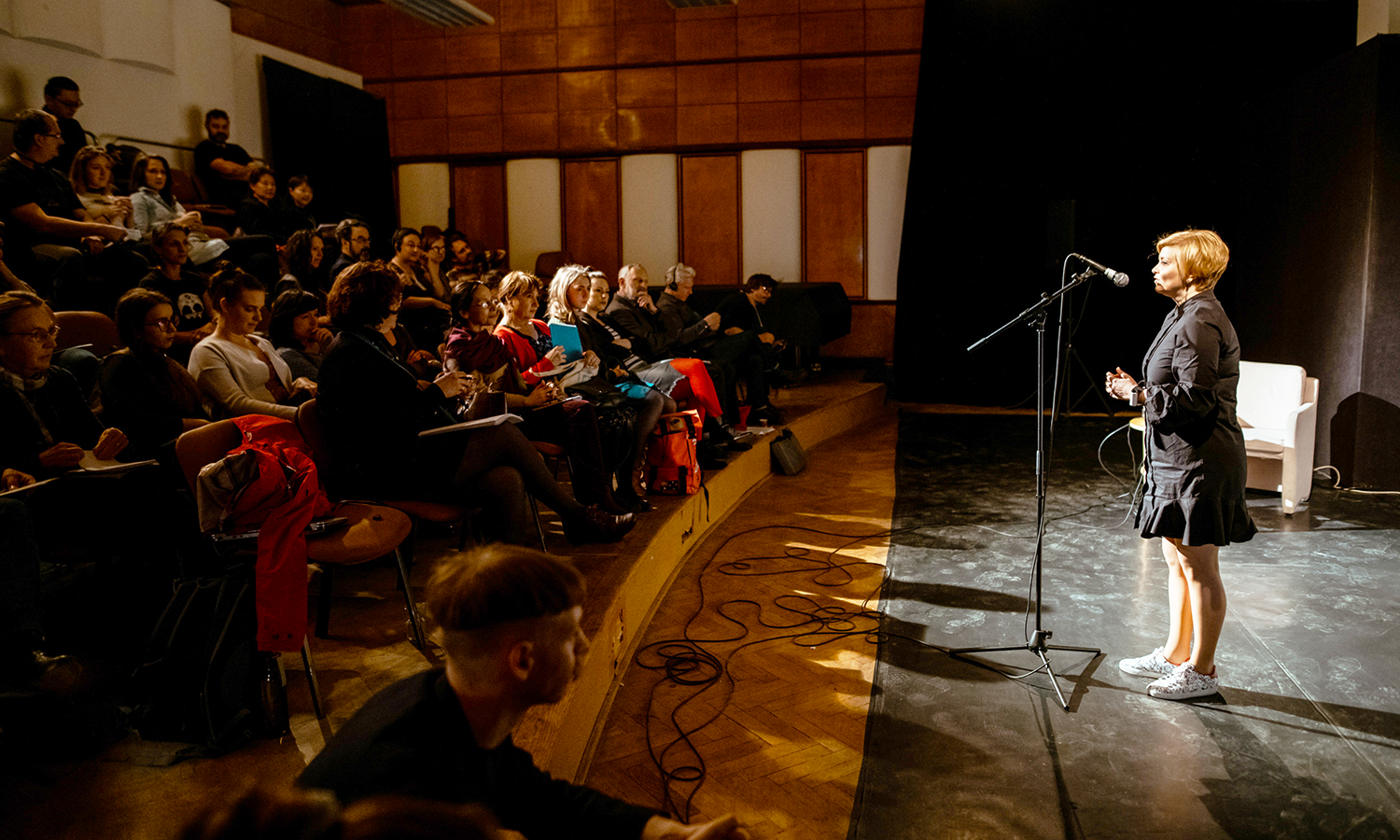
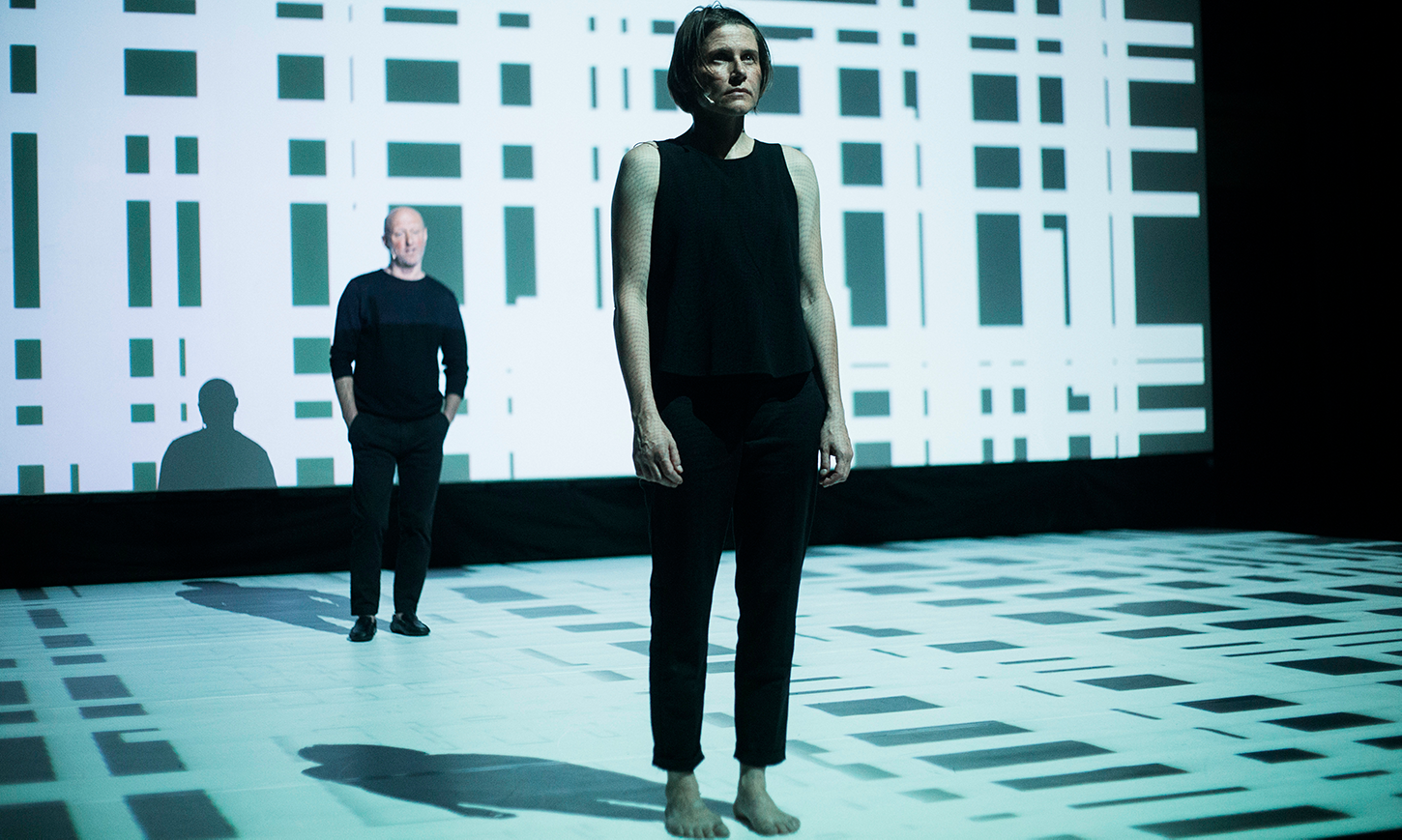
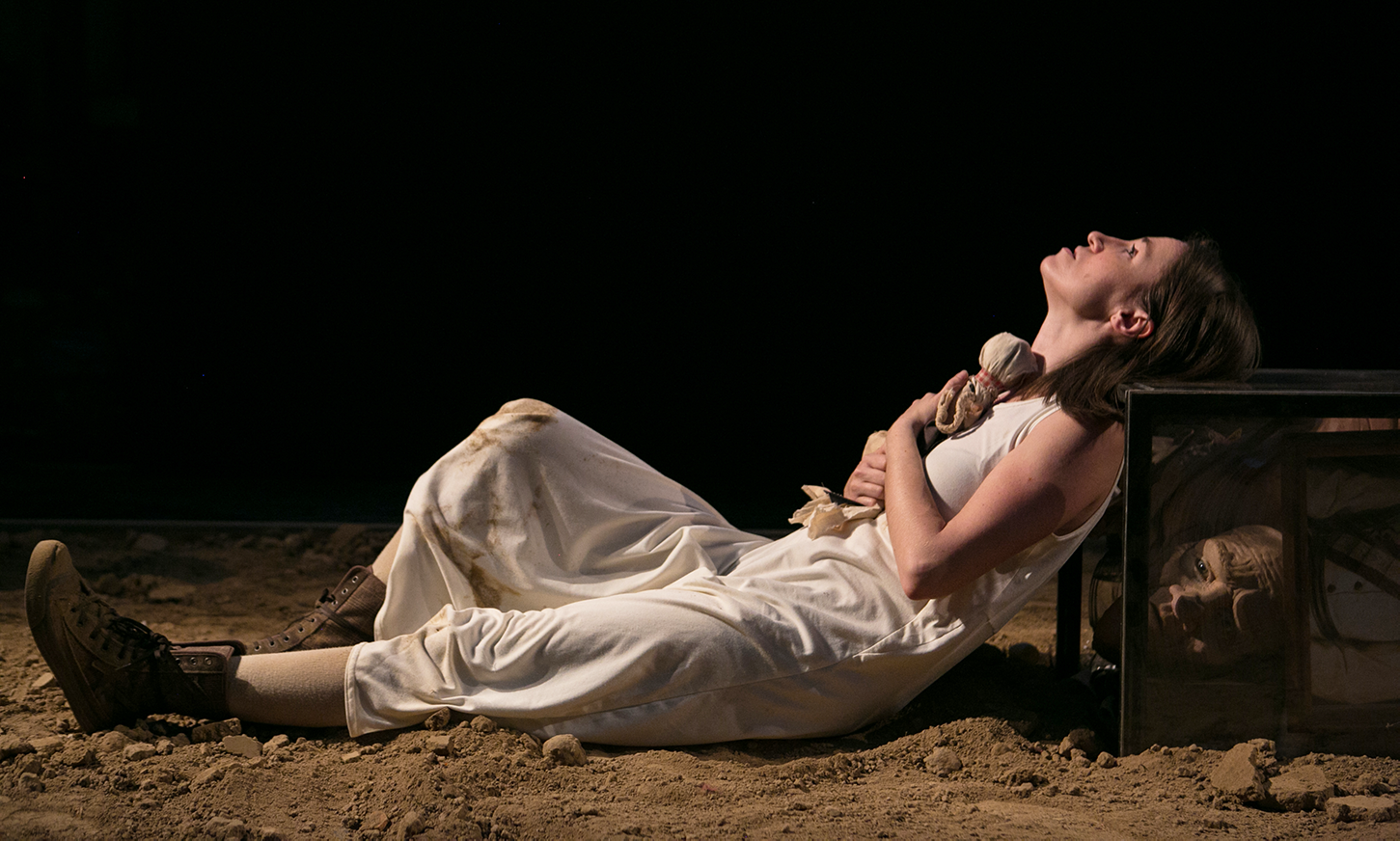
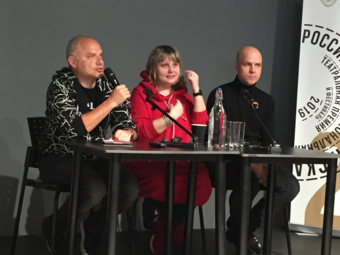



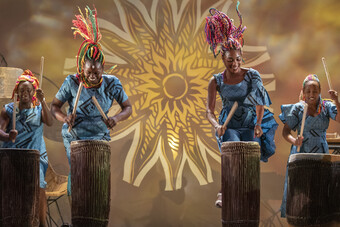

Comments
The article is just the start of the conversation—we want to know what you think about this subject, too! HowlRound is a space for knowledge-sharing, and we welcome spirited, thoughtful, and on-topic dialogue. Find our full comments policy here